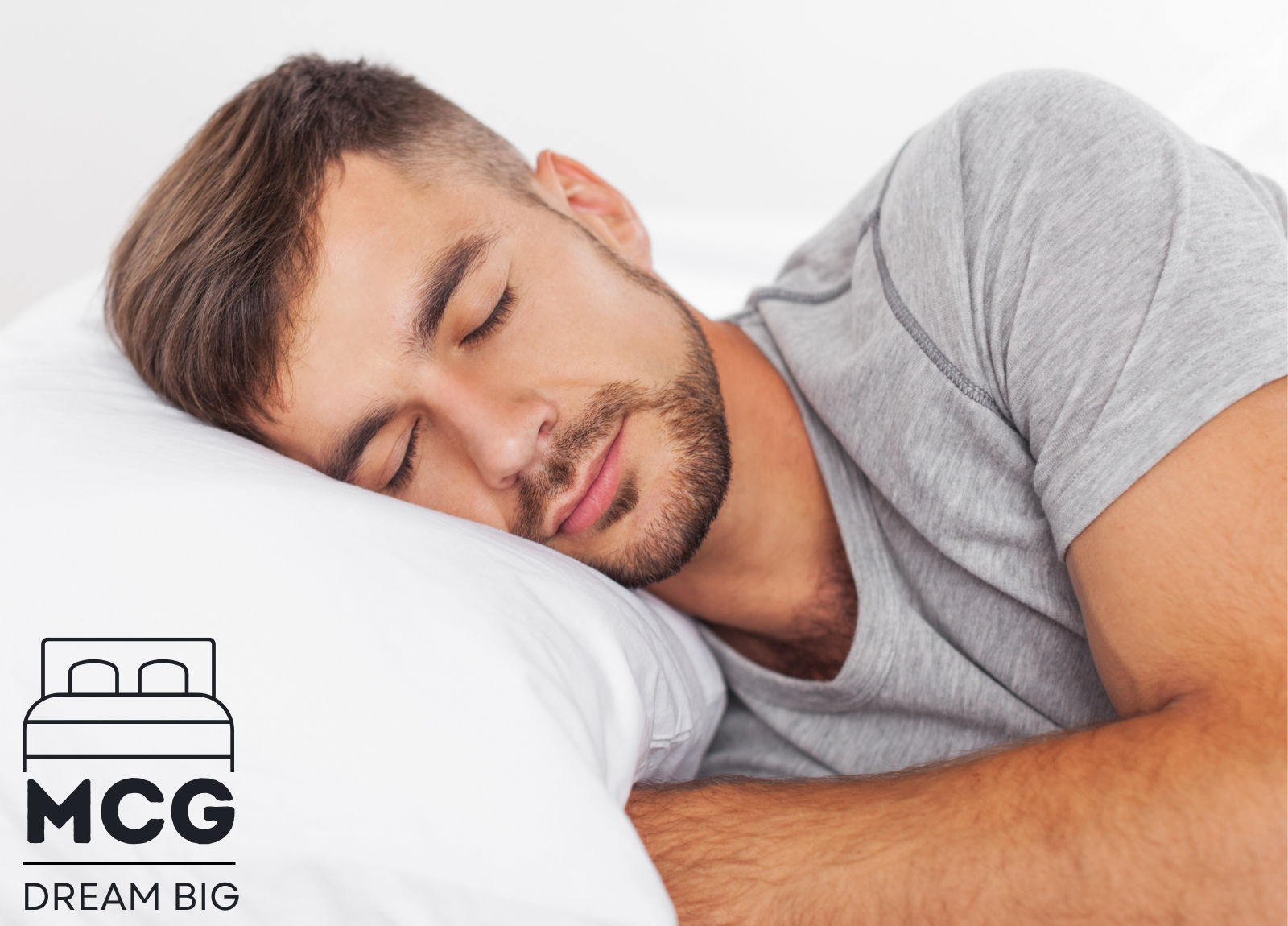
Are you having trouble falling asleep? Don’t worry there are some simple tips you can follow to help you drift off and get a restful night’s sleep. We have 18 tips that will help you get better sleep – from developing a sleep schedule, to getting plenty of exercise and daylight exposure – see below for our tips for sleeping better.
TIPS HOW TO SLEEP BETTER
Are you looking for some tips for sleeping better? We’ve gathered the top tips that people regularly use to help them nod off. They’re all very easy to follow. And, they might just help you fall asleep at bedtime. See below for our top tips for falling asleep.
1: DEVELOP A SLEEP SCHEDULE
The first tip for sleeping better is to develop a sleep schedule and stick to it. Try to go to bed and get up at the same time every day. This will help your body develop a natural hormonal rhythm.
When your body expects you to go to sleep it begins releasing a hormone called melatonin into your blood. This hormone makes you feel drowsy and encourages sleep. By developing a consistent sleep schedule you will be trying to fall asleep when your body is encouraging it.
The general advice is to try and get 8 hours of sleep and no more. Sticking to a consistent schedule reinforces your natural body clock and boosts your chances of falling asleep when bedtime comes.
2: PHYSICAL EXERCISE
One of the best tips for sleeping better is physical exercise. Studies have found that if you get some moderate exercise in during the day, it can half the amount of time it will take you to fall asleep later that night.
Timing is key when it comes to exercise. You need to get in early in the day and not too close to bedtime. Exercise boosts alertness and increases the levels of adrenaline and epinephrine in the blood.
These can keep you awake – so get your exercise in early – and avoid it close to bedtime. The advice is to exercise 3-4 hours before you intend to go to bed. This allows time for your body to return to a relaxed state.
3: GET PLENTY OF DAYLIGHT EXPOSURE
Getting plenty of exposure to bright daylight during the day will help you sleep at night time. Daylight stimulates alertness and this helps calibrate your circadian rhythm.
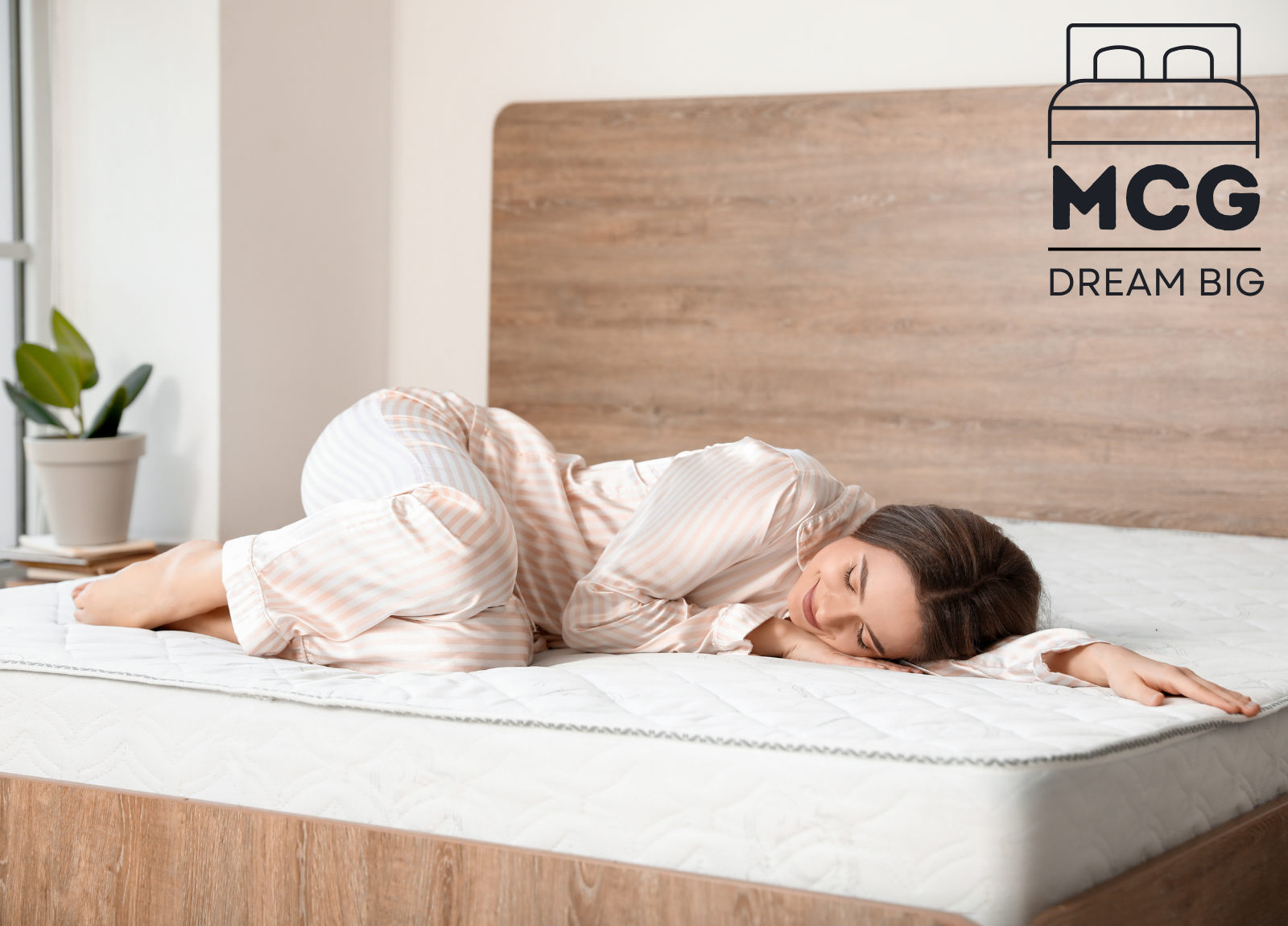
By stimulating the production of daytime hormones during daylight, your body will then naturally begin releasing sleep-inducing hormones in the nighttime. This is known as the circadian rhythm.
It is a natural cycle your body follows throughout the day. By exposing yourself to daylight during the day you are reinforcing the correct timing of this cycle. And, this will help the body prepare itself for sleep when nighttime arrives.
4: PRACTISE GOOD SLEEP HYGIENE
Practicing good sleep hygiene is a great way of making sure you get the best possible sleep come bedtime. Sleep hygiene refers to the practice of avoiding sleep during the day and saving it all for nighttime.
Napping during the day can confuse your body and upset your circadian rhythm. Avoiding sleep during the day as best you can increases your chances of sleeping better later that night.
If you must take a nap during the day, you should try and take it early in the day and not close to bedtime. Certain people need to have a daytime snooze, such as shift workers. If you can, limit it to 20 minutes and save your sleep for nighttime.
READ NEXT
• How Often Should You Change Your Mattress?
• Tips for Sleeping on a Plane
5: TRY A SLEEP-FRIENDLY DIET
For a better night’s sleep, take a look at what you’re eating. Try not to go to bed hungry but also avoid a large meal near bedtime. You will have difficulty falling asleep if you feel either hungry or overly full.
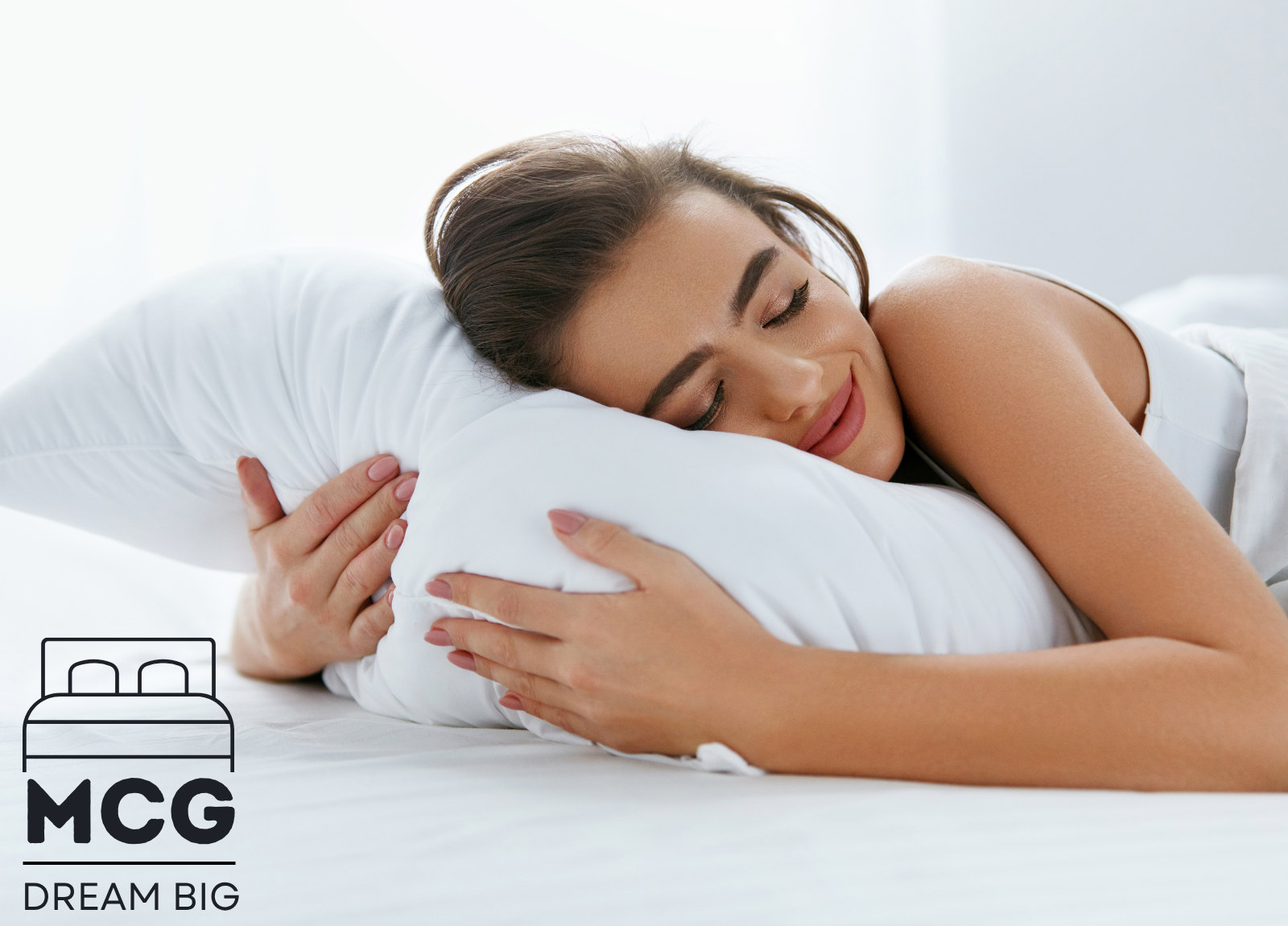
Caffeine deserves a special mention. Most people are aware that caffeine is a stimulant and should be avoided in the evenings. While it is great for stimulating focus and energy it is exactly what you need to avoid if you want to fall asleep.
Studies have shown that elevated levels of caffeine remain in the blood for 6-8 hours after you drink it. So, if you are planning on having a cup of coffee, make sure you time it so that it won’t interfere with your sleep cycle.
Alcohol should also be avoided if you are having difficulties falling asleep. While it might relax you in the short term, its effects will soon wear off and you’ll be feeling worse. Studies show that alcohol negatively interferes with sleep quality and often makes people have to take a trip to the bathroom during the night.
6: CALM BEDROOM ENVIRONMENT
Try to create a calming environment in your bedroom. This will help you relax and allow you to sleep better. Your bedroom should be dark, cool, and quiet. You can try adding black-out blinds to reduce the amount of light coming through your windows.
Using a fan or leaving a window open can help create a cooling breeze. And, if you are being disturbed by frequent noise – you can try using earplugs.
A room that is untidy or full of clutter can have a negative impact on your sleep quality. For a better night’s sleep try decluttering your room. Tidy away all the clutter. Clearing out a bedroom can create a calming and relaxing space that can boost your sleep quality.
7: DIM YOUR LIGHTS
As the great Bob Marley once said – dim your lights down low. And, it’s one of our top tips for sleeping better. Lowering the level of light intensity allows your body to relax and naturally wind down at the end of the day.
Bright harsh lights have the opposite effect and stimulate alertness.If you have been using bright home lighting in the run-up to bedtime – try and switch them out for low dim lights. Shaded lamps are your best bet.
These lamps create a relaxing mellow light that will help you unwind and prepare for bedtime.
8: CLEAR YOUR MIND BEFORE BEDTIME
Clearing your mind is key. Let go of concerns and worries before turning in will help you get better sleep. If there is something that is bothering you or on your mind – try making a note of it before you go to bed.
Jot it down on a piece of paper and try and leave it aside until the next day. When morning comes you can pick it up where you left off and stop worrying about it during the night.
Many people find a pre-sleep routine helps them relax and unwind as they approach bedtime. This may be as simple as writing in your diary, practicing some meditation, or reading a book before switching off the light.
9: REDUCE SCREEN TIME IN THE EVENING
Many of us are guilty of spending too much time on electronic devices. But, these devices emit a type of light called ‘blue light’ that is particularly confusing for your circadian rhythm.
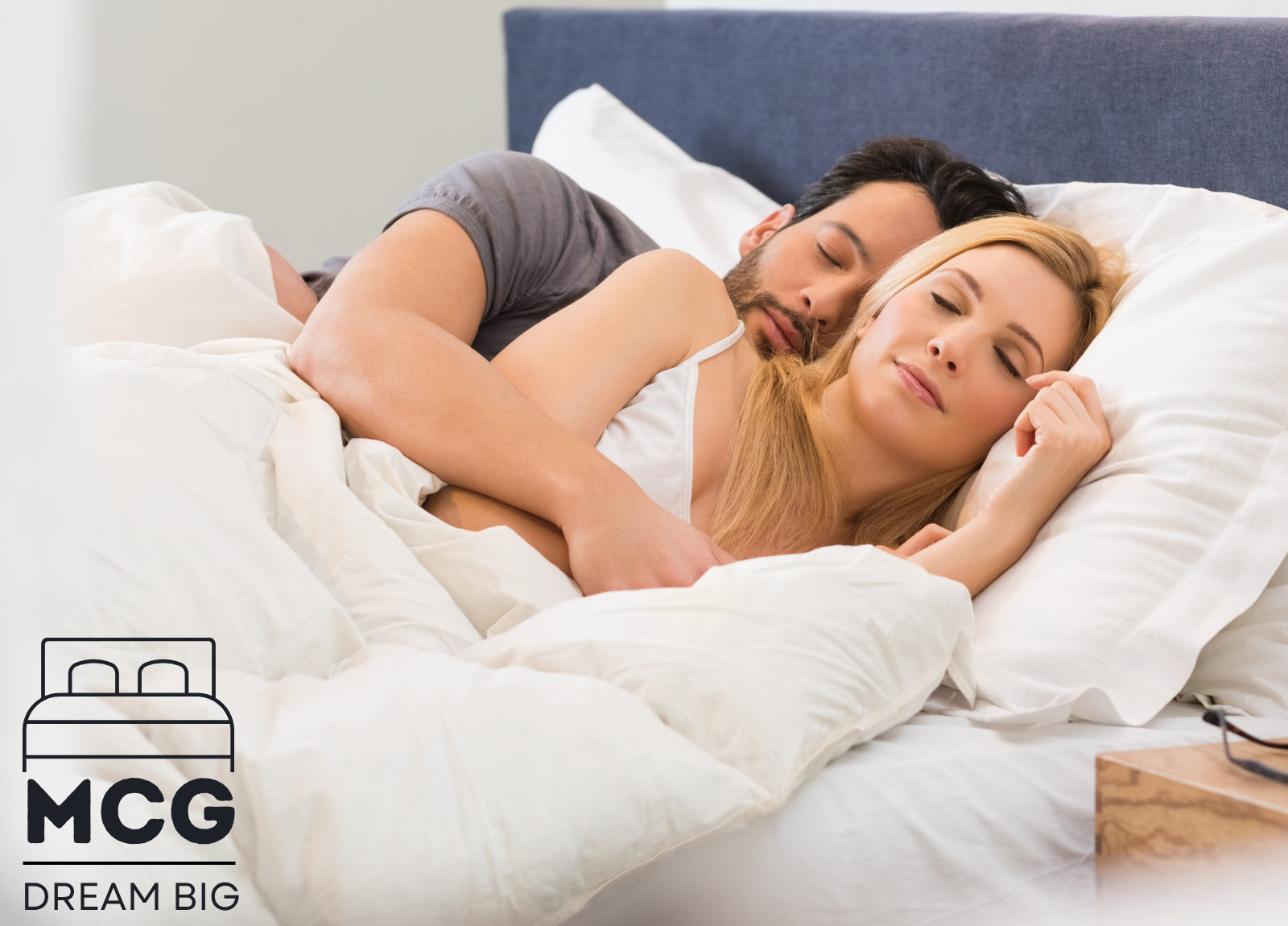
Blue light tricks your body into thinking it is still daytime. This disturbs the natural production of melatonin – the hormone that helps you unwind, feel drowsy and prepare for sleep. So, spending time on phones and laptops close to bedtime is a particularly bad idea.
If you want to boost your chances of having a better sleep – cut out the screen time in the evening and power down your devices. This will allow your body to relax and naturally prepare for a good night’s sleep.
10: ENJOY A RELAXING BATH
Enjoying a relaxing bath before bedtime is a proven technique for helping people sleep. Many people work a bath or even a warm shower into their bedtime routine. The relaxing effect of warm water is one of the best tips for sleeping better.
A warm bath tends to work best for older people. It helps them unwind and prepares the body for a good night’s sleep. If you don’t want to go to the trouble of running a full bath you can try a foot bath. It has similarly relaxing effects.
RELATED
- Clean a Mattress with Baking Soda
- How to Make a Bed Quiet
- Mattress Sizes Explained
- How to Dispose of a Mattress
- What Is a Mattress Topper?
- Is There Caffeine in Black Tea?
11: AVOID LIQUIDS BEFORE BED
Avoid consuming liquids shortly before you go to bed. Otherwise, you will have to get up in the middle of the night to take a trip to the bathroom. The medical term for excessive urination during the night is nocturia.
If you want to enjoy a peaceful sleep without having to make trips to the bathroom – avoid drinking anything in the run-up to bedtime. If you feel thirsty you can place some water next to your bed and take a sip if you are having difficulty falling asleep.
12: AVOID TOBACCO
If you are a smoker, try not to light up close to bedtime. Nicotine is a stimulant just like caffeine and if you smoke a cigarette in the late evening it will trigger your ‘stay awake’ hormones.
If you feel you really need some tobacco – try and do it early in the day. That way you will allow your body time to relax and prepare for sleep. Then, stay clear of the cigarettes as bedtime approaches.
13: GET A MORE COMFORTABLE MATTRESS
A comfortable mattress improves your sleep quality and leaves you feeling refreshed and energized for the next day. A good quality, comfortable mattress not only feels great – it can relieve back pain, shoulder and hip stiffness, and help align your back correctly.
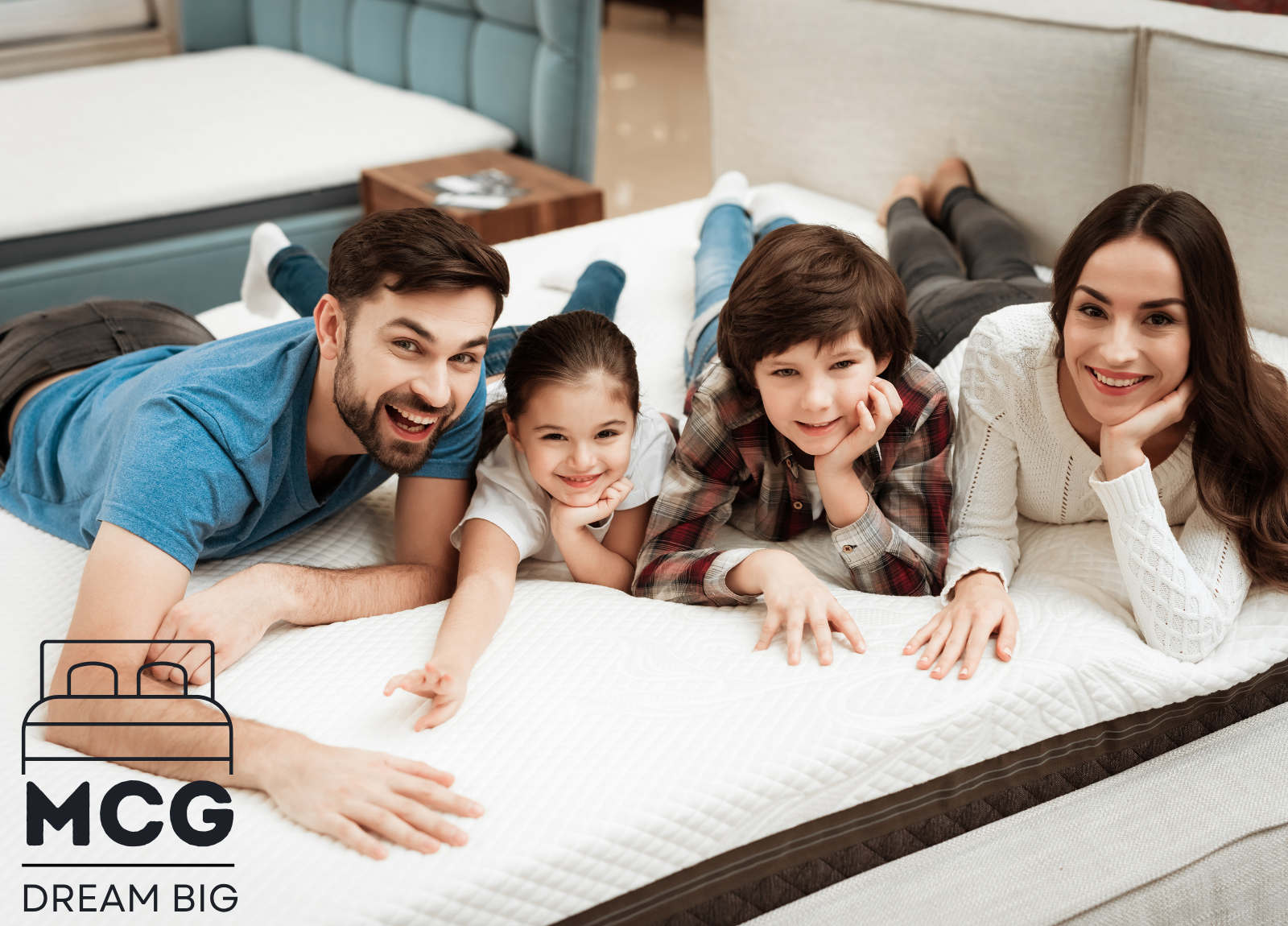
One of the best tips for sleeping better is to change your mattress and get a better one that delivers the support and cushioning you need to get a comfortable night’s sleep. To find the perfect mattress for you, check out the Top 10 Most Comfortable Mattresses.
14: TRY A LEG PILLOW
If you suffer from back pain and it’s affecting your sleep quality there’s a simple trick you can try that might provide some relief. Try placing a pillow between your knees while you sleep on your side.
Placing a pillow between your legs aligns the hips and relieves pressure on the lower back. Many people who suffer from back pain use this trick to help ease pain and sleep through the night. Easing back pain is often overlooked when covering tips for sleeping better.
15: NO PETS IN BED
Keeping pets out of your bed is one of the top tips for sleeping through the night for animal lovers. If you have a dog or cat and allow them to sleep in your bed – they may be disturbing your sleep. Our advice is to get them a bed of their own and keep them out of yours.
The movement of your pet during the night will disturb you. And, many pets can be highly alert during these hours. For some peace, it’s best to give yourself some space and keep them out of the bedroom altogether.
Also, pets can trigger allergies, and carry fleas, dust mites, and even ticks. If you want to minimize your chance of an allergic reaction or of getting bitten by a tiny critter during the night – keep your pets well away from the bedroom.
16: IF YOU CAN’T SLEEP – GET UP
If you can’t sleep, get up. Don’t continue to lie in bed if you can’t fall asleep and find yourself getting increasingly frustrated. It’s better to get up and spend some time away from the bed.
The best thing to do is try and do some form of activity that you find relaxing. And, make sure you do it in low light. Bright light will stimulate your system and make you feel alert. Some people like to read a book, others practice yoga.
Then, when you feel yourself relaxing, return to bed and you’ll be in a better place to drift off and get a restful night’s sleep.
17: MELATONIN SUPPLEMENT
Melatonin is a sleep-inducing hormone. Your body releases it naturally when it wants to go to bed and catch some sleep. Some people that are having difficulty sleeping take a melatonin supplement to help them get some better sleep.
If you are planning on taking melatonin, you speak to a doctor first to seek medical advice. In some countries, melatonin is available over the counter. And, in others, you need a prescription.
18: MEDICAL ADVICE / SLEEP DISORDER
If you are having difficulty sleeping and it has been going on for a long time, you may have a sleep disorder. Conditions such as sleep apnea and insomnia are common and can seriously affect peoples’ ability to get quality sleep.
If you feel you may have a condition that is preventing you from sleeping – you should consult a doctor. Only a medical professional can advise you on the best course of action if you are suffering from a sleep disorder.
WHAT TYPE OF MATTRESS IS BEST FOR SLEEPING?
The best type of mattress for sleeping is the one that feels most comfortable to you. We all have individual preferences for what we need in a mattress. Some people like a firm feel, others prefer soft.
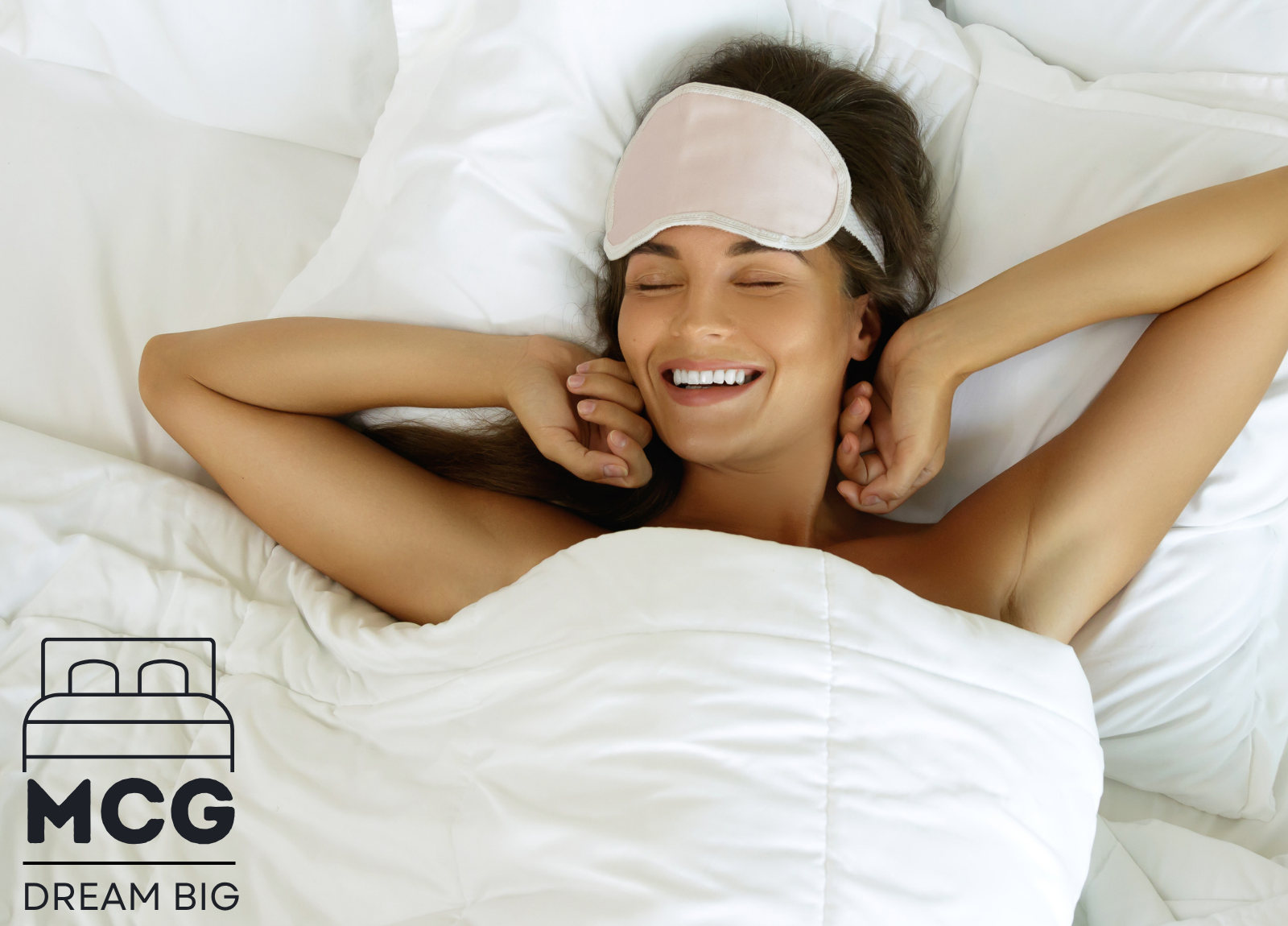
Others love the bounce of a traditional innerspring mattress and others prefer the motion isolation of memory foam. Choosing a mattress that works well for you is one of the best tips for sleeping better. Let’s take a look at the different mattress types and discuss how each one can help you sleep better.
INNERSPRING MATTRESS
Most traditional mattresses are innerspring. They contain a core of springs beneath a thin comfort layer. The springs provide a distinctive bounce that helps people move around the bed.
Innerspring mattresses are great for people that want responsive movement in a mattress. They are available in a wide range of firmness levels and suit all body types and sizes. Larger people often find an innerspring movement provides the best level of support and comfort.
MEMORY FOAM MATTRESS
Memory foam mattresses are popular for their soft cushioning and gentle cradling support. Unlike an innerspring, they do not deliver any responsive movement. Memory foam mattresses absorb motion, so there is no bounce.
They are available in a range of firmness levels. They work best for medium and lightweight people. They relieve pressure on the hips and shoulders for better sleep. For more see – Pros and Cons of a Memory Foam Mattress.
LATEX MATTRESS
Latex mattresses are made using latex foam. Mattresses made from natural latex are hypoallergenic, have a soft distinctive bounce, and are incredibly comfortable. They are a great choice for a restful sleep.
They can be quite expensive but if you’re looking for tips for sleeping better – a latex mattress could be a wise investment. They are also eco-friendly and have a natural cooling effect. For more see – Pros and Cons of a Latex Mattress.
HYBRID MATTRESS
A hybrid mattress combines more than one type of mattress technology. For example, some hybrids combine memory foam and innerspring. Or, hybrids that use innerspring and latex technologies.
These are often high-end mattresses. By combining different mattress types they deliver some of the benefits of each. For example, a memory foam comfort layer will provide soft cradling cushioning.
While an innerspring core beneath will provide bounce and responsive movement. For more information see – Pros and Cons of a Hybrid Mattress.
READ NEXT
• What Is the Best Type of Mattress For Me?
• Here’s How Stop a Sheet Sliding Off Mattress
• Does a Vindaloo Curry Affect Your Sleep?
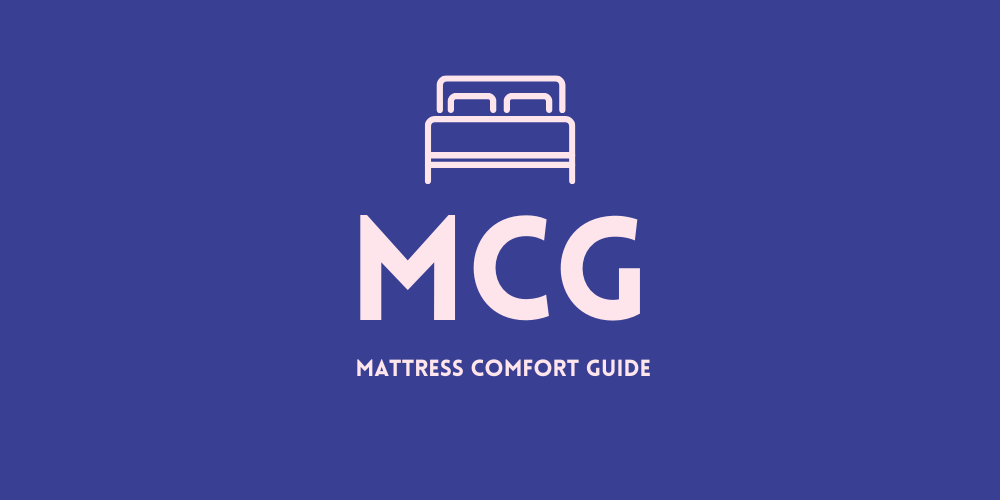
AUTHOR
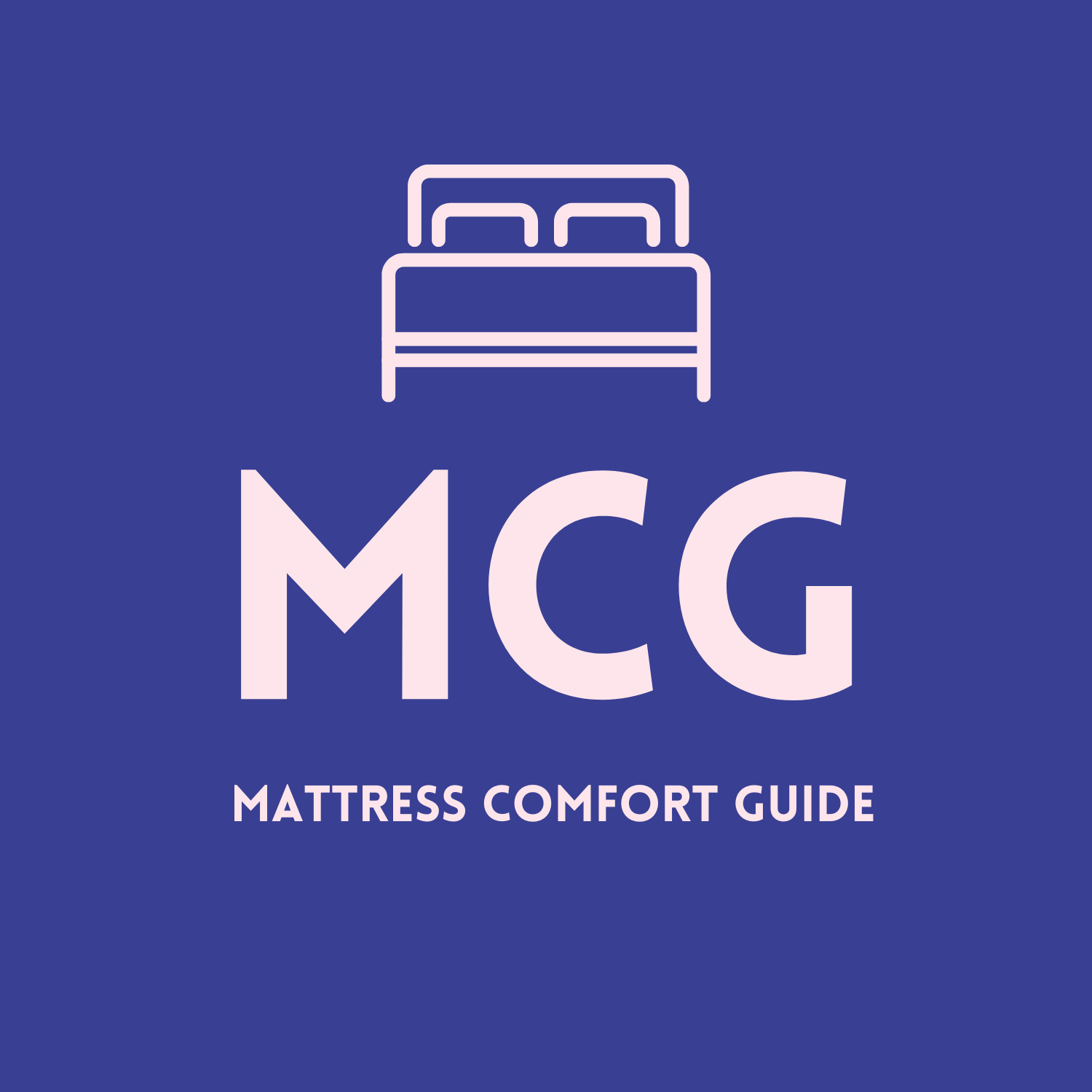
MCG Contributor
Jessica joined the MCG team in 2021 and is our in-house sleep expert. She is a fountain of knowledge on sleep cycles, sleep hygiene, and sleep-related disorders. Jessica is a graduate of the College of Arts and Sciences at the University of New Mexico and holds a B.S in Sociology.
When she’s not educating us on sleep-related matters she is continuing her studies at the University of Arizona. Outside of work and study, Jessica likes to explore the great outdoors. Her favorite places to visit include the White Sands National Park, Chaco Culture National Historical Park, and the Carlsbad Caverns National Park.
I think the best tip for sleeping better is to cut caffeine out of your diet.